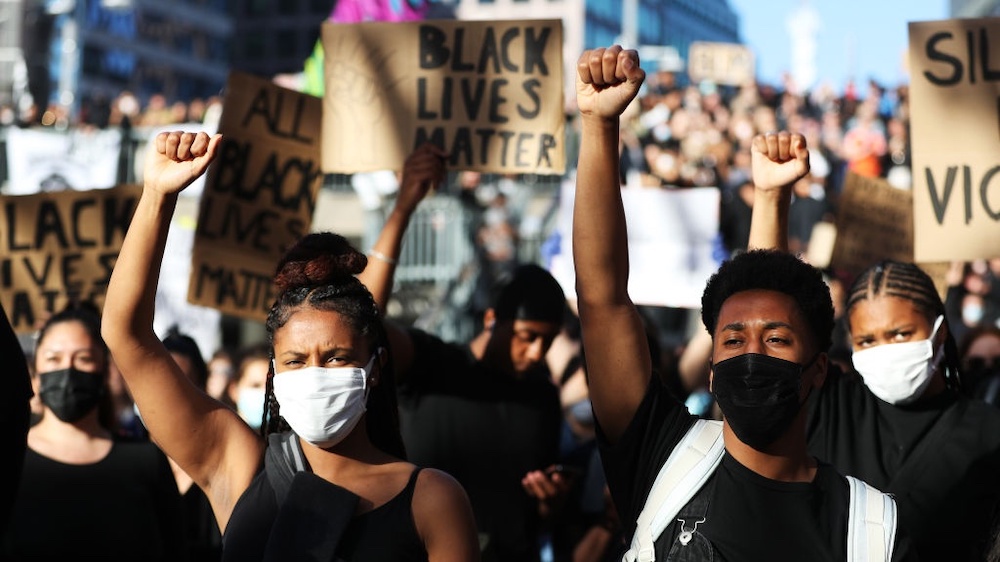If you’re interested in sharing your opinion on any cultural, political or personal topic, create an account here and check out our how-to post to learn more.
____
As this year (finally) comes to an end, it becomes a time for reflection. 2020 has been traumatic, especially for Black people. As President-elect Joe Biden stated in his victory speech on November 20, “It’s time [for America] to heal.”
However, to heal from a trauma, it is important to understand what happened and the work that needs to be done, specifically in five categories: (1) government and policies, (2) the cannabis blueprint, (3) racial injustice, (4) incarceration and (5) reparations.
Just because the calendar year is coming to an end, it doesn't mean the grind stops. It is just beginning. Below are 21 articles to remind you how to continue the fight in 2021.
Government and Policies
From the war on drugs to the fighting of passing bills and to the Supreme Court appointment of Judge Amy Coney Barrett, governmental policies and actions have not been supportive of Black people. Indeed, the systematic oppression this country is based on keeps Black people from being able to attain generational wealth.
1. The war on drugs created sentencing disparities for crack and powder cocaine for Black people. Thanks to long-standing advocacy, this disparity was significantly reduced:
2. Read how the appointment of self-described “handmaid” Amy Coney Barrett has created speculation and concern for how this may change the Supreme Court’s balance.
3. Listen to a discussion providing background on councilmember Kenyan R. McDuffie’s bill requesting a task force on reparations in the District of Columbia.
4. President-elect Joe Biden released his economic plan in July 2020; however, any mention of reparations was missing.
The Cannabis Blueprint
As we demand that reparations are needed for the injustice and damages inflicted on the Black community, a logical question is not why, but how. How will America pay for the reparations? The criminalization of marijuana is part of a skewed justice system that disproportionately sends Black people to prison. Now, legalized cannabis could provide a blueprint for how to use tax dollars from the decriminalization of marijuana as a means to benefit the Black community.
5. Evanston, Illinois, was one of the first cities to use the tax dollars from legal marijuana sales to fund reparations initiatives.
6. Oregon follows Illinois’ blueprint in funding reparations with marijuana sales tax dollars.
7. Law enforcement’s targeting of possession and distribution of cannabis has negatively impacted Black people and communities for decades.
Racial Injustice
The murders of George Floyd, Breonna Taylor and Ahmaud Arbery once again highlight racial injustice in America. Police officers taking Black people’s lives is a misuse of power. Whom are they protecting? The criminal legal system, specifically punishment for cruel and fatal actions, needs to change. Protests that demand racial justice are not new. Black people have “peacefully raised dissent each and every time.” But such demands have yet to lead to law enforcement accountability.
8. Nearly half a century after the Attica prison uprising, America continues to disregard the lives of the incarcerated during the COVID 19 pandemic, indicating the possibility of history repeating itself.
9. It is more than a protest — it is a demand for justice, a demand for change.
10. Juneteenth is not only a time of celebration, but a time for reflection of the work that still needs to be done.
11. Black activists are calling to defund the police in an effort to reshape Black communities.
Incarceration
COVID-19 has changed the way our society works on a financial and social level. The phrase “socially distanced” has become part of our everyday language. But what about those who are incarcerated or reentering the community during a pandemic? An open letter from the American Civil Liberties Union to the Louisiana governor and members of the Louisiana Supreme Court paints the horrific picture of how people behind bars are living with COVID-19. Congress has done little to provide the necessary resources to combat COVID-19 in the prisons and jails. 49 years ago, the Attica prison rebellion took place. Will history be doomed to repeat itself if we refuse to acknowledge that prisons cannot practice social distancing and are, in turn, a COVID-19 hotspot?
12. The resources provided to prisons to tackle COVID-19 are scarce.
13. Congress has not sufficiently acted to support incarcerated people during the pandemic.
14. 49 years ago, the Attica Prison Rebellion reminded the nation that the constitution is for everyone, even those behind bars.
Reparations
To move forward, America needs to account for enslavement and post-slavery degradation that it has caused Black people in the past. Reparations is a long-standing issue. It has not just popped up. Traditional practices such as redlining and systematic racism have been just some of the ways that have kept Black people from creating generational wealth. The desire and reason for reparations are clear. Now is the right time. People are energized, mad and adding pressure for racial justice in America.
15. How would America calculate reparations?
16. Black People cannot wait for reparations.
17. Black communities have been robbed of generational wealth.
18. Reparations are a way to heal from slavery.
19. There are ways to make reparations work in America. (Listen by starting at the 13-minute mark.)
20. We need to go back to the basics to approve reparations for African Americans.
21. After reviewing the past and the present, America needs to evaluate what the future looks like for reconciliation and how we get there.
____
Nkechi Taifa is an attorney and the author of ‘Black Power, Black Lawyer: My Audacious Quest for Justice.’
